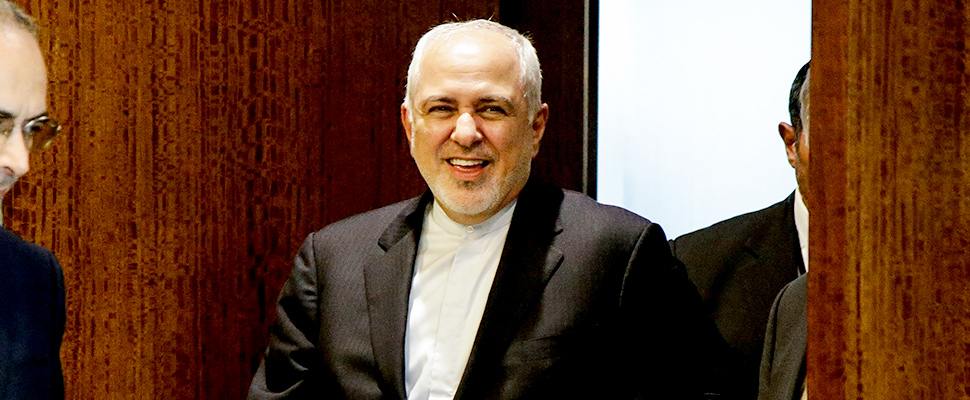“Sanctions are reasons for war”, says Iranian chancellor to the United States
The Iranian Foreign Minister described the sanctions applied by the United States government against some countries as "reasons for war"

Iranian Foreign Minister Mohammad Javad Zarif arrives for a meeting with U.N. Secretary General Antonio Guterres at United Nations headquarters Thursday, July 18, 2019. (AP Photo/Frank Franklin II)
Reuters | Deisy Buitrago
Listen to this article
The Iranian Foreign Minister, Mohammad Javad Zarif, described as "reasons for war" the sanctions applied by the United States government against some countries, a new pronouncement amid the greatest escalation of confrontations with the West.
Leer en español: "Las sanciones son razones para la guerra", dice canciller iraní a Estados Unidos
Washington pulled out of a 2015 nuclear deal in which the Islamic nation agreed to restrict its program in exchange for relief from punishment. However, new and tougher sanctions by the United States came into force in May.
Venezuela has also been subject to similar measures against both the state oil company Petróleos de Venezuela (PDVSA) and government officials of Nicolás Maduro.
"The sanctions are reasons for war, they are means of aggression, they are aimed at civilians in order to achieve political objectives." Secretary (of the State of the United States, Mike) Pompeo has made it clear that he has to put pressure on civilians to that they choose with whom they want to live ", said the Iranian chancellor, through a translator, in Caracas.
"We can not allow the United States to continue using this type of sanctions because it is pure and simple terrorism," he added during an intervention at the ministerial meeting of Non-Aligned Movement (NAM).
The minister greeted the "resistance" of Venezuela to similar measures dictated by the US government.
Read also: Brazil's Bolsonaro: Make South America Great Again
Amid the escalation of tensions between the West and the Islamic Republic, the Iranian Revolutionary Guards captured the British oil tanker Stena Impero in the Strait of Hormuz on July 19, after the United Kingdom stopped an Iranian ship earlier this month.
The official did not comment on the incident with the oil tanker.
Relations between Iran and the West have been increasingly tense since British naval forces seized an Iranian oil tanker in Gibraltar on 4 July on suspicion of smuggling oil to Syria, in violation of EU sanctions.





